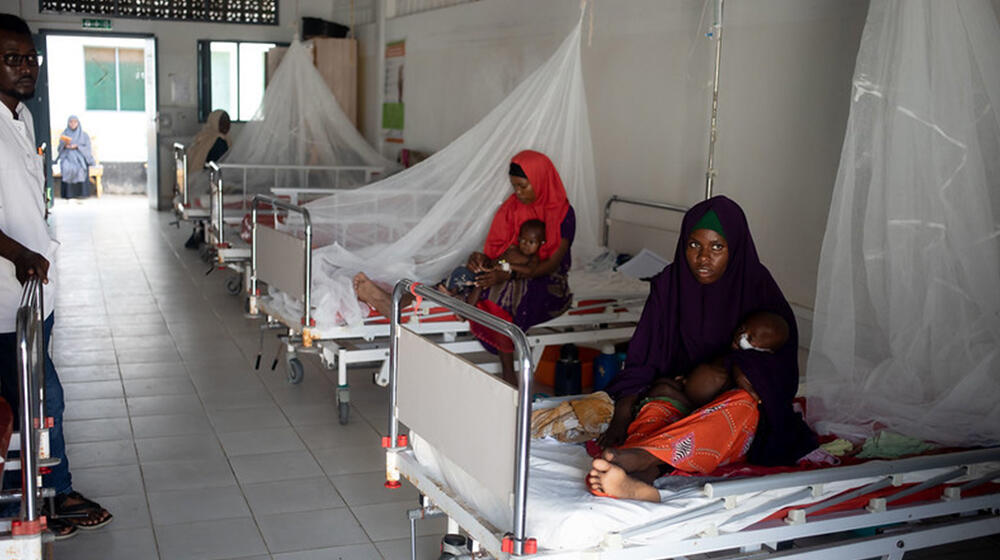18 March, 2024 - Mogadishu, Somalia - The United Nations Population Fund (UNFPA) and the World Health Organization (WHO), with funding from the European Civil Protection and Humanitarian Aid Operations (EU ECHO), have supported the Federal and State Ministries of Health to provide lifesaving health supplies and services to over 5 million people across drought-affected areas of Banadir, South West, Jubbaland and Galmudug states in Somalia.
The 24-month ECHO-funded project is to increase access to life-saving health and nutrition services for populations within IDP camps and host communities and addressing the needs of pregnant and lactating women, elderly individuals, and children under five in drought and conflict-affected areas.
Both the WHO and UNFPA supported federal and state ministries of health, and partner organizations to provide life-saving preventative and care services through the procurement and distribution of essential medical supply for effective case management of severe acute malnutrition with medical complications in children, essential health and severe malnutrition kits (including reproductive health kits), as well as to support the timely detection and response to outbreaks. The beneficiaries of these health interventions included over 50% of women and over 1.2 million under-five years of age children in the drought-affected communities.
Simultaneously, the WHO and UNFPA partnership helped mitigate the impact of flash flooding resulting from El-Nino impact in Jubbaland and surrounding states by providing healthcare services to internally displaced populations towards the last quarters of 2023.
Mr. Niyi Ojuolape, UNFPA Somalia Country Representative, commented, 'We are committed to mitigating the impact of drought and conflict on vulnerable populations, particularly pregnant women and young children.'
Dr Renee Van de Weerdt, WHO Representative to Somalia, while appreciating the collaboration between WHO, UNICEF, UNFPA and the Ministry of Health said, 'The drought and food insecurity have severely impacted people health and the Somalian health system. WHO is committed to support the government of Somalia to make the health system more resilient and adapted to climate-related events .'
With support from ECHO, UNFPA, UNICEF and WHO and its health cluster partners will continue to support the government of Somalia with the procurement and distribution of medical supplies to manage severe acute malnutrition, provide emergency obstetric and neonatal care and other reproductive health services, and better detect and respond to outbreaks until April 2025.
For media inquiries, please contact:
UNFPA, Somalia: Fatimah Shah, Communications & Advocacy Specialist, fatshah@unfpa.org
WHO, Somalia: Fouzia Bano, Communications Officer, banof@who.int
*Note to Editors:
ECHO is the Humanitarian Aid department of the European Commission that provides emergency assistance and relief to the victims of natural disasters or armed conflict outside the European Union.
UNFPA is the United Nations’ (UN) agency that promotes reproductive health, gender equality, and population development to improve the well-being of individuals and communities worldwide.
WHO is the UN’s specialized agency of the United Nations responsible for international public health and leading the health cluster in Somalia.
This project builds on ECHO’s previous support to WHO’s drought response entitled “Support to essential life-saving primary healthcare services and epidemic detection and response through the procurement and distribution of essential medical equipment, supplies and medicines to drought-affected districts in Somalia.”


